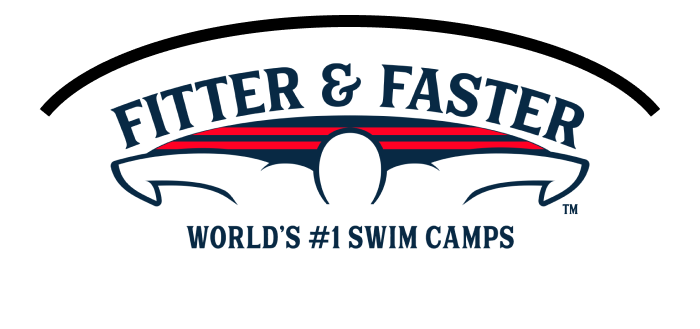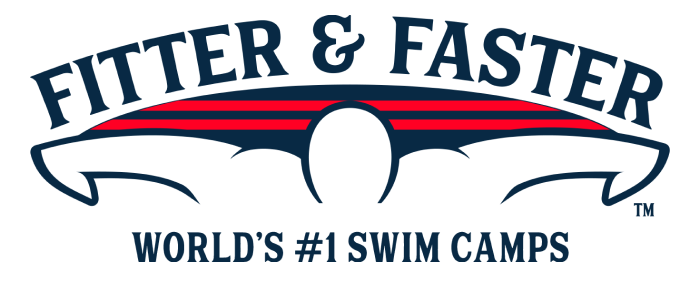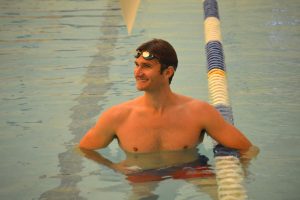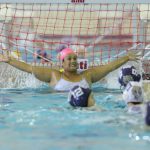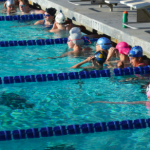About the Author: Larsen Jensen, a two-time Olympian and former US Navy SEAL, is best known for his incredibly positive and unshakable mindset. He carries the lessons he learned over a lifetime of swimming to career pursuits and is now a startup founder and investor.
Over 6 years ago, I retired from competitive swimming to pursue a career as a U.S. Navy SEAL. The decision wasn’t easy, but I prepared myself mentally for what I expected to be the greatest challenge of my life. Looking in the rear-view mirror at my swimming career, the coaches who trained me, and the competitors I swam against, I can honestly say that the swimming community prepared me to tackle any challenge in life—not the least of which was earning the SEAL Trident.
My swimming career had a comparatively late start by most standards. I grew up on an almond farm on the outskirts of Bakersfield, California where the winters were foggy and the summers were hot. Because of the climactic conditions swimming was generally considered a summer sport. Unsurprisingly, few people wanted to swim in outdoor morning practices when the temperatures were below freezing. I was one of the anomalies and at 12 years old, after my first summer of competitive swimming, I was hooked. I loved the feeling of racing and enjoyed learning the powerful lesson of competitive sport—the harder you work, the better you’ll perform.
After years of reflection on my competitive swimming career and, after the recent completion of my military career, I’ve come to realize that there are some key components that helped me, and others, succeed in both endeavors. Below are a handful of commonalities that contributed to my success as an Olympic swimmer and go on to serve as a Navy SEAL.
Never plan to rise to the occasion—you will always fall back on your training
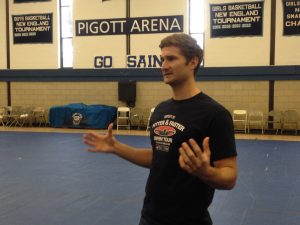
Stepping onto the blocks for a championship meet is a stressful experience. I remember feeling like the whole years’ worth of hard work boiled down to that one moment. Fortunately, throughout each season I worked with my coaches to set quantifiable goals to pursue in my workouts. If I hit the times prescribed by my coach, we mutually believed that I would achieve my goal race time during my championship meet. On the other hand, we rarely expected to swim fast at a meet if I didn’t demonstrate the ability to perform in practice. We always felt that in order to perform in a high pressure situation, like the Olympics, I must first demonstrate the ability to perform in low pressure situations like practice.
In my SEAL career, we were trained to confront a multitude of stressful situations. If our element performed poorly during training, we would repeat the drill over again until we got it right. If I performed poorly as an individual, still, the team would perform the drill over again until I got it right. Each training block progressed in complexity and intensity as the weeks passed and usually culminated in a full dress rehearsal of everything we learned. No two situations were the same, but they were all chaotic. We knew that we had to get it right in training before we could get it right when it really counted.
The lesson from both of these examples is simple; never plan to rise to the occasion. In order to perform at a high level in a stressful situation, you must first get it right in training. This is because of the impact that stress has on the human body. When our senses become overwhelmed by stress, we go into a form of autopilot. In order to fully prepare ourselves for high performance when it matters, we must train until high performance is our natural default. It takes thousands of hours of practice in low pressure situations to ensure the same level of performance in high pressure situations. I like to keep in mind something our SEAL instructors said to us, “Train like you fight. Fight to win.”
Be confident in your preparation
There were a number of times in my swimming career where I was intimidated by a race or a competitor. My coaches told me to always trust that I have done more work than anyone else and that I had nothing to worry about. They would say that “the hay is in the barn”—meaning the work has been finished and there was no more preparation to be done. Once it was time for taper, I focused on positive self-talk opposed to the hypercritical mentality of in-season training. Once the months of hard training were completed I had to be confident that my 5-6 hours a day of training prepared me for my championship performance.
In a real-world military operation, the feeling of uncertainty is inescapable and even more pronounced. At any moment, the plan our team rehearsed could be thrown out the window due to any number of contingencies. (As the saying goes, “No battle plan ever survives first contact with the enemy.”) In situations like those it is easy to become overwhelmed, but that’s when our training kicks in. The hay was in the barn and we had to trust in our training and preparation.
If you prepared yourself to the best of your ability, and trained yourself to win, then worrying about the outcome will do nothing but hurt you. On race day, or when the big moment comes, be confident in the work you have done and recognize that you are prepared. Fretting about uncertainty will not enable your performance and will only detract from your need to be in the moment. Trust in yourself and those who have helped you.
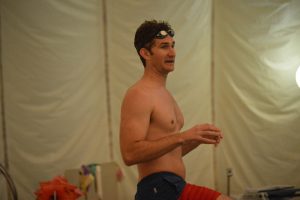 Always compete
Always compete
I do not believe I would have reached the same level of swimming performance were it not for my teammates and competitors. In many cases the two were one in the same. At USC and during Olympic Training Camps, I trained side by side with my biggest rivals and competitors. There were more than a few heated moments but, for the most part, we encouraged each other’s performance. We thrived off of each other. When Klete Keller, Ous Mellouli, Erik Vendt, or Peter Vanderkaay were having a great workout, I was forced to try to keep up, thus improving my own performance. The reverse was the case when I was having an exceptional day. Without a doubt, I owe much of my swimming success to my closest competitors.
The same can be said for competition in SEAL training. We were always trying to better one another. If I had a good day in the gym you can be sure I told my teammates. If they were having a good day at the shooting range they would rub it in without mercy. This competitive atmosphere created a culture of excellence where everyone wanted to be the best—at everything. I was never the top performer in the gym or on the range, but trying to keep up, made me far better.
Many people are intimidated by the prospect of competition or they don’t want to divulge information to their rivals. I take the opposite approach and believe that competition takes performance to the next level. I believe that it’s impossible to push yourself to maximum performance if you don’t have someone else there to feed off of. Everyone has off days, but cultivating a culture of healthy competition increases everybody’s performance and does wonders for teams.
Maintain a long-term perspective
No one knows the importance of a long term perspective better than an Olympian. The chance for Olympic glory comes around once every 4 years, so if you don’t maintain that perspective, it’s easy to fall off track. I know the feeling first hand as I lost my own perspective after the 2004 Olympic Games. In the months following the games, I felt like I was wondering around directionless. I trained so hard and for so long that, when it was over, I felt lost because the next goal was 4 years away. With the help of my coaches I was able to refocus, and set goals for NCAA’s and national level meets and get back on track. The best way I found to keep a long term goal in perspective is to break it up into numerous short term goals that culminate with the long term goal. That way you never get lost and wonder about aimlessly. It also breaks what would otherwise be large, seemingly unattainable challenges, into manageable pieces.
In 1st Phase of BUD/S training, most people quit before an evolution would even begin. The fear and uncertainty of the pain made them lose track of why they were there in the first place. A mentor of mine, and SEAL Chief, told me when I was going through BUD/S to take it “one meal at a time.” Meaning to only focus on small chunks of the day at a time so not to get overwhelmed by the task in its entirety. This advice helped me to get through the immediate situation with the added benefit of working towards my end goal of becoming a SEAL.
 Swimmers need to be focused for longer periods of time between competitions than athletes in most other sports. Compound this longer competition periodicity with the fewer peak competitions, and you often find athletes who lose their path. In order to combat this problem I recommend setting smaller, more regular goals that conclude with an end of season goal. Using this methodology will both increase focus and make even the hardest tasks seem attainable.
Swimmers need to be focused for longer periods of time between competitions than athletes in most other sports. Compound this longer competition periodicity with the fewer peak competitions, and you often find athletes who lose their path. In order to combat this problem I recommend setting smaller, more regular goals that conclude with an end of season goal. Using this methodology will both increase focus and make even the hardest tasks seem attainable.
I am more appreciative now than ever for the foundation of training and life perspective the sport of swimming instilled in me. As with so many other things, it takes some time away to fully recognize and appreciate the experience. It is interesting, and probably shouldn’t be surprising, that there are so many common factors that lead to swimming success and a career as a Navy SEAL. From time to time, I’m asked if my swimming background helped me make it through BUD/S training. I always answer that it did, but not necessarily because of my swimming proficiency. I think it helped me because it taught me to be confident in my preparation, to never plan to rise to the occasion, to always compete, and to maintain a long term perspective.


